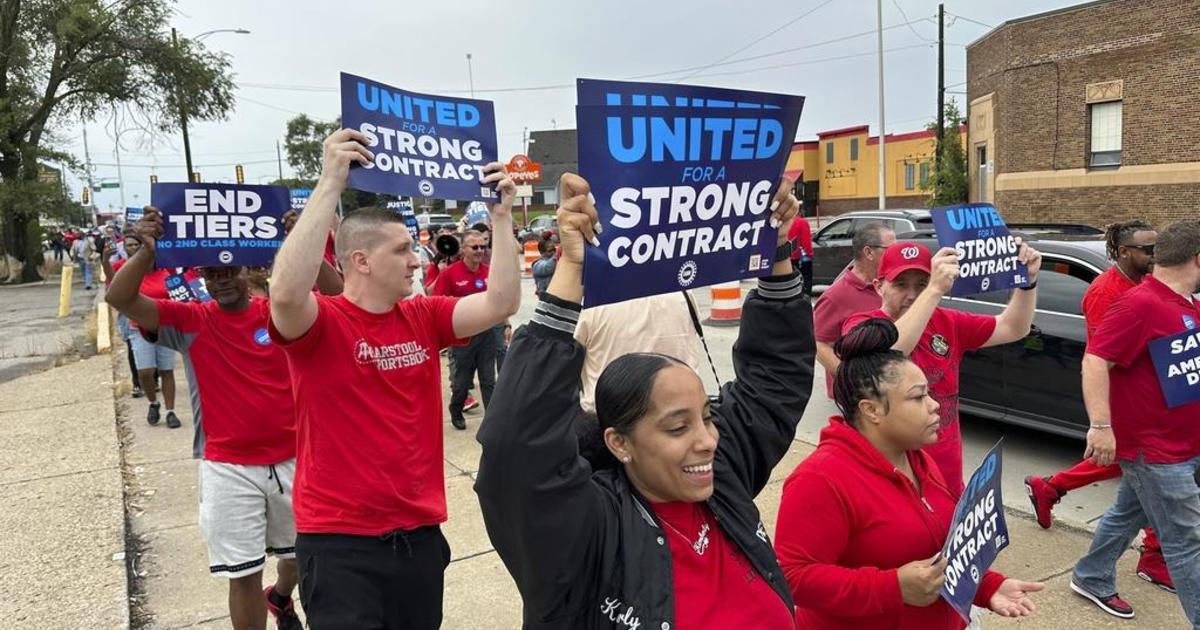**How Potential UAW Strike Could Impact the Economy**
**07:28**
Automaker Stellantis has recently presented the United Auto Workers (UAW) with a new four-year deal, aiming to reach a labor contract agreement before the current one expires. The proposal includes a 14.5% increase in wages for most employees but excludes lump sum payments. Mark Stewart, the Chief Operating Officer of Stellantis North America, conveyed this offer in a letter to the employees.
The UAW, on the other hand, is pushing for more substantial pay raises. Stellantis’ proposal also incorporates a one-time inflation protection payment of $6,000 in the first year, followed by $4,500 over the next three years of the contract. Additionally, the counteroffer seeks to increase hourly wages from $15.78 to $20 for temporary workers and accelerate the progression timeline from eight years to six years for employees moving through the pay scale.
While Stellantis’ proposal is closer to the union’s demands of a 46% across-the-board increase over four years, both sides still have significant differences. The union’s demands involve a 32-hour workweek with 40 hours of pay, reinstating traditional pensions for new hires, union representation for workers at new battery plants, and restoring traditional pensions. Currently, top-scale UAW assembly plant workers earn around $32 per hour, along with annual profit-sharing checks.
Approximately 146,000 UAW members working for the three Detroit automakers might initiate a strike if no agreement is reached by 11:59 p.m. on Thursday when their contracts expire.
**United Auto Workers Union Finalizing Strike Vote**
**06:26**
Stellantis’ counteroffer, along with counteroffers from General Motors and Ford, has been deemed “disappointing” by the UAW. President Shawn Fain will discuss these offers with the members. Earlier this week, Fain issued a warning that the union plans to strike against any Detroit automaker that fails to reach a new agreement by the contract deadline.
**Chances of a Strike**
While wage increases are still under negotiation, there is a 60% to 65% likelihood that the auto workers will go on strike next week, according to Benjamin Salisbury, an analyst at Height Securities. Salisbury also mentioned that the UAW is financially prepared for a lengthy strike, citing the union’s strike fund worth $825 million, used to provide $500 per week to eligible members on strike. If all UAW members at GM, Ford, and Stellantis were to strike, the fund could last approximately 11 weeks.
A strike by all three major automakers could have extensive consequences, not only for the industry but also for the Midwest region and the national economy, depending on its duration. The auto industry accounts for about 3% of the nation’s economic output, and a prolonged strike could ultimately lead to higher vehicle prices.
Ford’s counterproposal includes 9% raises and lump sum payments over four years, while GM’s proposal offers 10% raises along with lump sums.
**Trending News**
Denial of responsibility! Vigour Times is an automatic aggregator of Global media. In each content, the hyperlink to the primary source is specified. All trademarks belong to their rightful owners, and all materials to their authors. For any complaint, please reach us at – [email protected]. We will take necessary action within 24 hours.


